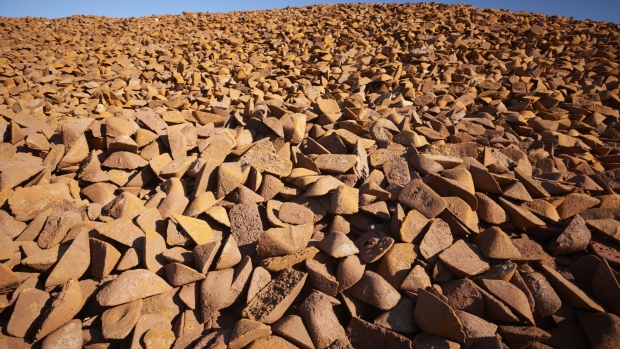Jan 30, 2023
Guinea Gets Chinese Boost to Unlock Simandou Iron Ore Deposit
, Bloomberg News

(Bloomberg) -- Guinea announced the resumption of works to develop Simandou, the world’s biggest untapped deposit of high-grade iron ore, after holding high-level talks with Chinese authorities and investors.
Rio Tinto Group, Winning Simandou Consortium and China Baowu Steel Group agreed to restart infrastructure development at the site in March, Guinea’s military government said in a statement Monday. The companies are expected to finalize negotiations on the project’s paperwork no later than Feb. 28, it said.
Guinea had ordered investors to stop operations at the site in March last year, before calling for them to restart about two weeks later. But progress soon stalled amid disagreements over what share of the revenue the government would keep and how the $15 billion project would be financed.
Monday’s announcement is a boost for China, which is seeking to reduce its reliance on Brazilian and Australian iron ore. China consumed more than 67% of the world’s traded iron ore in 2021, according to data from the World Steel Association.
A Guinean government delegation traveled to China on Jan. 11-22 to meet with all stakeholders and financing partners in the Simandou project, including the China Development Bank, the Export-Import Bank of China and Industrial and Commercial Bank of China, according to the statement.
Efforts to develop Simandou have been stymied for years by a litany of disputes over ownership and infrastructure, and by political changes in the West African country.
Rio Tinto, the Guinean government and Winning formed a joint venture in July to develop the project’s groundwork. In October, China’s Baowu, the world’s biggest steelmaker, signed a cooperation agreement with Winning to invest in the blocks controlled by the consortium, which is backed by Chinese and Singaporean companies.
Simandou is divided into four blocks. Two blocks in the north are controlled by Winning and the other two were won by Rio Tinto in partnership with Aluminum Corp. of China and other Chinese companies. The development cost includes the construction of port and rail infrastructure.
©2023 Bloomberg L.P.






